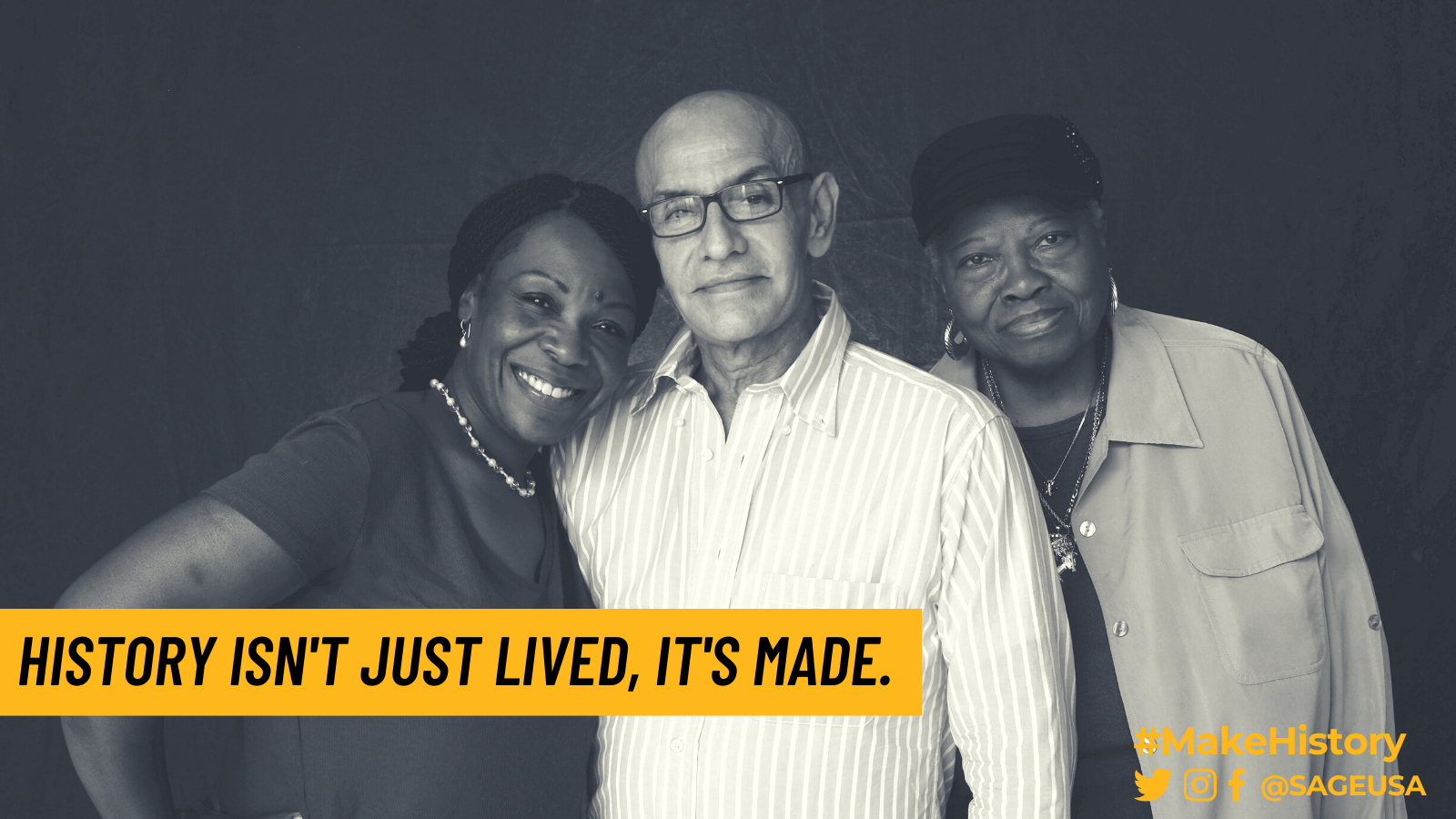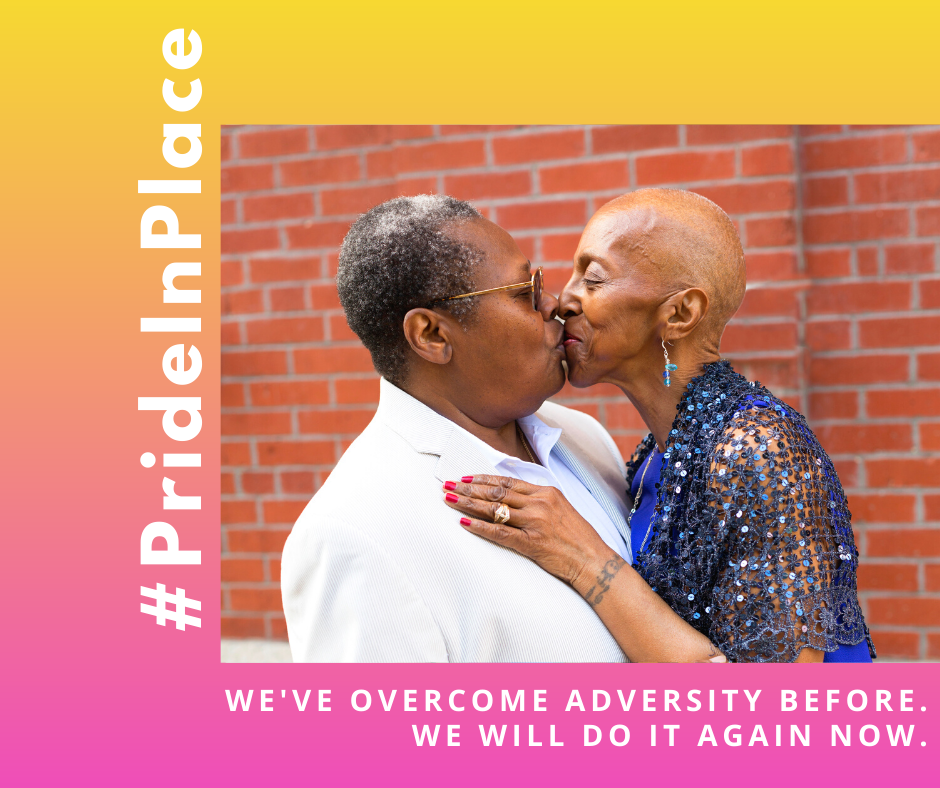This article originally appeared on the SAGE blog.
As we begin our celebration of LGBT History Month, we must recognize how LGBT history has been told. For decades, the trailblazing work of BIPOC LGBT pioneers has been eclipsed by white and cisgender narratives. Names like Marsha P. Johnson and Sylvia Rivera have not always been at the forefront of our history.
Far too often, we see the practice of whitewashing affect how history is told. This leaves the BIPOC community with the task of undoing this flawed storytelling. They cannot and should not do it alone, so it is up to white community members and allies to do better. That’s why SAGE dedicated this past Pride month to honoring the LGBT people of color who fought against police violence at Stonewall. We must continue to elevate the voices that show us that history isn’t just lived, it’s made.
LGBT elders deserve to have their history told accurately and told by them – especially during LGBT History Month.
Our community’s pioneers have always been on the front lines, and their resilience is what continues to propel us forward. We see our elders’ dedication in trans pioneer Miss Major Griffin Gracy, whose leadership continues to inspire activism in support of Black Lives Matter and trans women of color. We see it in history being made today, as the torch is passed to BIPOC trans leaders Cecilia Gentili and Tanya Asapansa-Johnson Walker. Their recent lawsuit challenged the U.S. Department of Health and Human Services’ removal of anti-discrimination protections for the trans community in the Affordable Care Act. We see it in so many of our trailblazing LGBT elders of color who continue to prove that history isn’t just lived; it’s made.
Throughout LGBT History Month, SAGE will focus on stories of resilience across the community. We will amplify our BIPOC LGBT elders and older trans, non-binary, and gender-nonconforming people. It is our responsibility to showcase these fierce leaders and their continued influence on our community. From organizing the March on Washington and protesting police violence, to protecting the right to safe and effective healthcare, when it comes to making history, BIPOC LGBT pioneers refuse to be invisible.
The opinions expressed in this article are those of the author and do not necessarily reflect those of the Diverse Elders Coalition.



